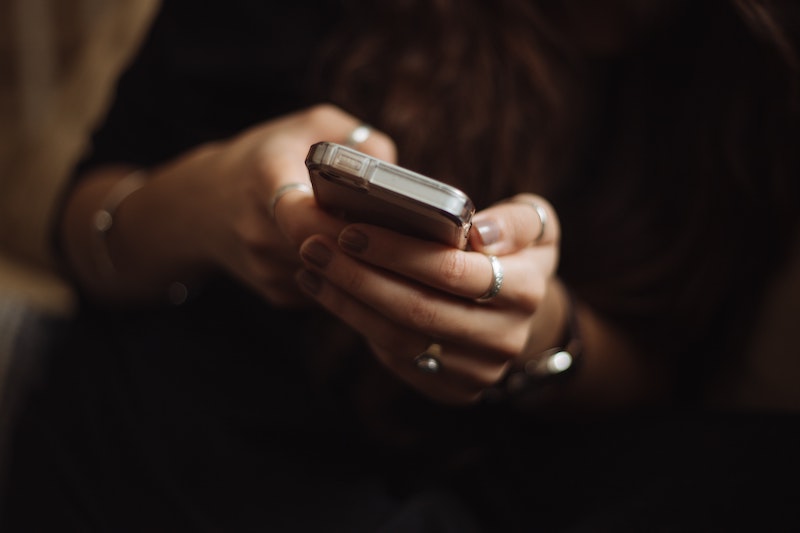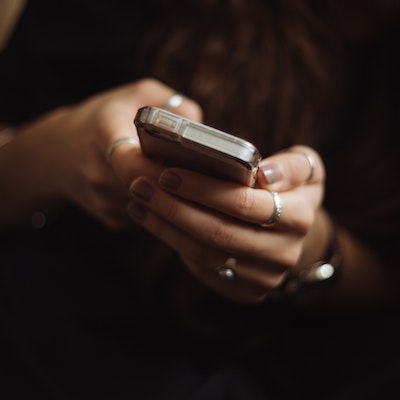
After months of physical distancing, longing for social connection, many of us at Sanvello noticed an increase in our daily social media usage. The seemingly-endless Instagram scrolls and anxiety-fueled Twitter news binges in the time of Covid-19 have been both understandable and undeniable.
And it makes sense: we’re all seeking out a combination of entertainment, distraction, and information right now. Watching your friend’s baby take its first steps or swapping a hilarious meme with your friends feels highly rewarding in the moment. But what about when it’s midnight, and you wanted to fall asleep an hour ago, and you’re still on your phone? Or when someone says your name on the Zoom, but you’re three scrolls deep into a Twitter thread? We’re not suggesting you cut ties with social media completely, but it might be time to reevaluate the amount of time that we’re spending on those channels and examine how all that time is affecting our overall mental health.
Social media connection isn’t the same as real-life connection.
While social media can help us to feel more connected to others in the moment, it’s important to remember that this form of socializing is not the same as real-life, human-to-human connection. In our quest for social outlets, platforms such as TikTok and Facebook can actually be counterproductive. Studies continue to show that social media usage can lead to an increased risk of loneliness, anxiety, and depression.
Like us, you may have watched Netflix’s latest hit documentary “The Social Dilemma”, which delves into some of the consequences of society’s dependence on social media. All of the studies, stats, and chatter have made it clear that implementing a social media break, along with healthy boundaries, is definitely worth considering.
Try these tips to reduce your social media intake.
Ok, so we’ve made a pretty strong case as to why it’s a good idea to cut back on social media, but it’s easier said than done because these apps are highly addictive. Social media is specifically designed to keep the user’s attention by giving us temporary hits of dopamine, thanks to comments, likes, shares, and follows. Craving this reward chemical can lead us to check our social media constantly for immediate, yet temporary, gratification.
A recent University of Pennsylvania study found that limiting social media use to just 30 minutes a day resulted in lower levels of anxiety, depression, and sleep problems in its participants. If you’ve ever gotten sucked down an Instagram rabbit hole, you know just how quickly 30 minutes can fly by. Luckily, the study also showed that any reduction to your time spent on social media can improve your mental health.
Here are a few tips to help you spend less time scrolling:
- Adjust your phone settings to track and regulate the amount of time spent on social media apps. If you’re an iPhone user, you can use the Screen Time function to manage the time spent on particular apps.
- Disable notifications on your phone so that they don’t distract you throughout the day. It’s no secret that these alerts are designed to pull you back onto the apps at every turn, so removing them helps eliminate the knee jerk reaction we often have to open up the platforms. It’s OK to keep notifications for calls, texts, and apps that help you keep healthy habits like mental health services and learning, but try to turn them off for social media, news, and other apps that aren’t serving you.
- Take time to put your phone away each day. Determine what time of day feels best for you to unplug. At the dinner table, while exercising, or when you’re spending quality time with friends and family are great opportunities to put away the screen.
- Keep your phone out of the bedroom. Not only will this improve your sleep and overall mood, but it will drastically cut down on time spent on addictive social media platforms while lounging in bed. If your phone acts as your alarm clock, set a stack of books on top of it when going to bed.
- Consider deleting social media apps from your phone. Many find it beneficial to only be able to check their feed from a desktop or laptop computer.
- Ask yourself if you need a social media detox. Observe your behavior and overall relationship to social media and consider going off the platforms for a day, a week, or even a month at a time.
- Take time to analyze what information you are consuming and how it makes you feel. Consider unfollowing any person, news source, or business that aren’t beneficial to your mental health.
- Prioritize social connection outside of social media. If you find yourself searching for connection, consider calling a friend or asking someone to go on a socially distant walk.
If any of these suggestions sounded “crazy” or made you cringe or think, “well I can’t do that,” then investigate why. Those reactions are telling you something about your relationship with your phone and these apps. Breaking habits is a challenge, but it’s a worthy one.
How social media can lead to feelings of inadequacy.
Although it may help us to feel connected and offer us a platform to express ourselves, the comparative nature of social media can lead to feelings of inadequacy. If you think about it, by scrolling through an Instagram feed, you’re being exposed at a rapid pace to other people’s highlight reels of filtered images, career highs, and seemingly perfect lifestyles. When we only see the best versions of others, it is natural to come away with the story that we’re not good enough.
Another outcome of excessive time spent scrolling is the likelihood that we’ll walk away with feelings of FOMO (fear of missing out). You know, it’s that sinking feeling when your friends are enjoying an activity without you or someone posts photos of an event or vacation that you weren’t able to experience firsthand. Feeling as though your life isn’t as adventurous or exciting as it “should be” can slowly wear on one’s self-esteem.
If you’re finding that time spent on social media is making you feel more isolated than connected, consider taking a break to reclaim your time. Reaching out to others and focusing on your life’s goals and special moments in real time can be much more rewarding than chasing virtual likes. The next time you reflexively reach for a social media fix, consider taking a pause to check in with your reality before diving into other’s perfectly curated content.
